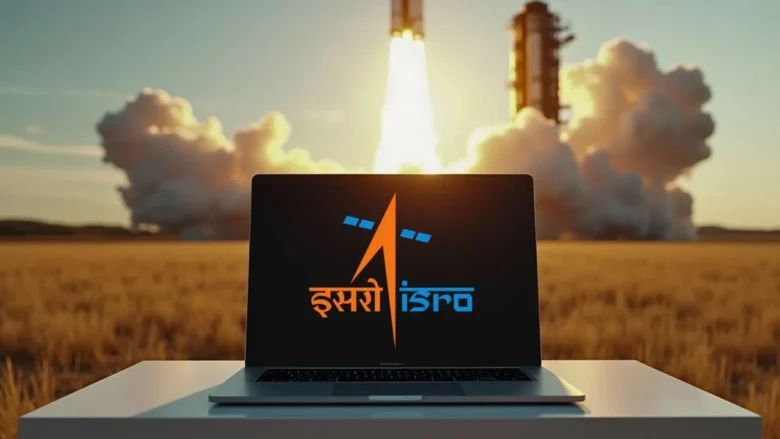The registrations for the Bharatiya Antariksh Hackathon (BAH) 2025 have begun. This year’s hackathon was launched on June 18, 2025, by Dr. V. Narayanan, Secretary of the Department of Space and Chairman of ISRO.
Organized by the Indian Space Research Organisation (ISRO), the BAH was launched in 2024 with the goal of inspiring young minds to engage in space research and technology and to develop innovative solutions to significant challenges in the field. The BAH offers a fantastic opportunity for young talent to showcase their skills, tackle real-world problems, and potentially secure an internship with ISRO.
What’s New in the 2025 Edition?
This year’s hackathon brings 14 problem statements across modern cutting-edge domains, including geospatial technology, space science, image processing, artificial intelligence, and machine learning.
Who Can Participate?
Students pursuing undergraduate, postgraduate, or PhD programs in India are eligible. This is your chance to work on problems that matter and create tech that could one day be used by ISRO scientists.
Note: Working professionals and non-students are not eligible for the hackathon.
Why should you participate?
- Learn from the Best: You’ll be mentored by scientists and experts from ISRO who will guide you through the entire process.
- Build a Strong Network: Connect with bright minds, researchers, and professionals from academia, industry, and the space sector.
- Internship at ISRO: Top-performing participants stand a chance to bag internships at ISRO, working on real projects alongside top engineers and scientists.
- National Recognition: Your work will be showcased on a national stage. It’s a major boost for your academic and career profile.
How to Participate?
- Registration: Head to the official ISRO hackathon portal and sign up before July 9.
- Form a Team: Gather 3 to 4 like-minded individuals. Participants can belong to different institutions but must form a team within the allowed size limit.
- Pick a Challenge: Choose one of the problem statements listed on the hackathon website.
- Start Building: Develop your solution using your skills and mentor guidance.
- Submit Your Idea: Once ready, submit it for review by ISRO’s expert panel.
Challenges
Here are the challenges you can choose from:
- Forest Fire Spread Simulation using AI/ML.
- Building an AI-based help bot for information retrieval out of a knowledge graph created based on static/dynamic content at a web portal.
- Satellite-based air pollution monitoring using satellite observations, ground data, reanalysis datasets, and AI/ML.
- Designing an LLM system for solving complex spatial analysis tasks through intelligent geoprocessing orchestration.
- Using diffusion models for predicting cloud motion with INSAT-3DR/3DS imagery.
- Using AI/ML to detect changes in glacial lakes, roadways, and drainage systems via multi-source satellite imagery.
- Build an application providing granular, real-time, and predictive air quality insights for underserved regions.
- Propose novel methods to handle imbalanced datasets in Earth observation for improving deep learning outcomes.
- Developing an ML algorithm to detect and classify tropical cloud formations using half-hourly INSAT satellite data.
- Using particle data from the SWIS-ASPEX payload aboard Aditya-L1 to identify coronal mass ejection (CME) events.
- Creating a technique to detect landslides and boulders on the Moon using imagery from Chandrayaan missions.
- Using dual-image super-resolution and blind evaluation methods to enhance optical satellite imagery resolution.
- Generate high-resolution Digital Elevation Models (DEMs) of the lunar surface using shape-from-shading techniques.
- Developing a robust multi-temporal analysis system using LISS-4 imagery for user-defined areas of interest (AOI).
Hackathon Timeline
The timeline of the hackathon is as follows:
- June 18–July 9: Registrations and idea submissions
- June 25: Problem Statement Explainer Session 1
- June 26: Problem Statement Explainer Session 2
- June 27–July 4: Mentor-mentee interactions
- July 24: Announcement of shortlisted teams.
- August 7-8: Grand Finale at NRSC, JD Metla Campus, Hyderabad
Contact Information
| Contact Method | Details |
|---|---|
| isrobah2025support@hack2skill.com | |
| Discord | Join Discord Server |
Register now, and be sure to bookmark this page so you won’t miss any updates!


I want to do work with ISRO
Excited to see what innovative solutions emerge from this hackathon.
looking forward to the backgrounding ideas that will help me to shape the future of space exploration.